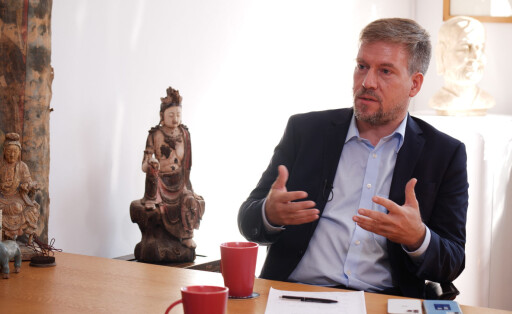


Business representatives frequently accuse the Chinese government of unfairly supporting its domestic companies. And indeed, there are some high-profile cases. But China's subsidies in the field of research and development hardly have any positive effects. The framework conditions for innovation also leave much to be desired. But Beijing is taking great efforts to make its economy more innovative.
By Nico Beckert

With its 14th Five-Year Plan, the Chinese government has set itself the ambitious goal of creating a more innovation-driven economy. By 2050, the People's Republic wants to be the world leader in science and technology. To this end, Beijing is planning, among other things, extensive R D subsidies in companies. The upcoming event of the "Global China Conversations" at IfW Kiel is focusing on the efficacy of this Chinese innovation policy.
By Redaktion Table

Not even universities are spared the re-ideologization of the People's Republic. If you want to work in China as a Western academic, you should be aware of this – and to a certain extent have to come to terms with it, says Ruth Schimanowski. She is heading the Beijing office of the German Academic Exchange Service (DAAD). In our CEO-Talk, she explains why Chinese scholars are good for the German academic landscape and why there is a renaissance of German as an academic language. The interview was conducted by Frank Sieren.
By Frank Sieren

In a recent study, the Rosa Luxemburg Foundation accuses German print media of adopting a Eurocentric perspective in their reporting on China. However, its authors fail to assess how close to reality the texts examined actually are. Instead, they base their judgment on core concepts that are supposed to indicate a "media-constructed enemy image of China." a counter-argument criticizes the study of ignoring the political reality in Germany.
By Marcel Grzanna

Niels Peter Thomas heads the China business of Springer Nature, one of the world's leading academic publishers. He talks with China.Table about the state of Chinese research and its publishing practices. Thomas observes a leap in the general quality of publications by Chinese scientists. This is also bringing a boost in international renown, especially as more and more papers are made in collaboration with Western institutions. Thomas also explains whether artificial intelligence will soon replace human authors. The interview was conducted by Frank Sieren.
By Frank Sieren




During an internal meeting, Huawei founder Ren Zhengfei swears his staff in for the challenges to come. The minutes, obtained by China.Table, reveal which measures the company's management has planned: Huawei requires more top-class international staff and needs more courage for basic research.
By Frank Sieren